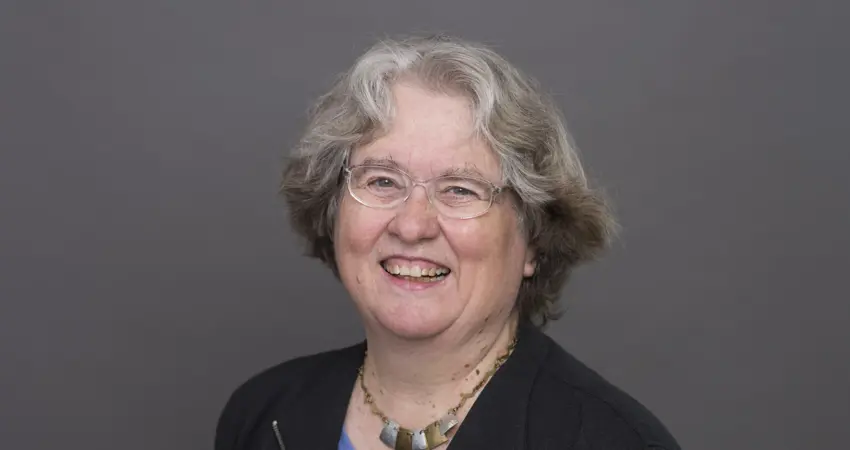05 May 2020
Professor Janet Pierrehumbert wins the ISCA Medal for Scientific Achievement 2020
Award recognises Professor of Language Modelling's contribution to the field of speech communication and phonology

Professor of Language Modelling Janet Pierrehumbert
Professor of Language Modelling Janet Pierrehumbert has been awarded the prestigious 2020 ISCA Medal for Scientific Achievement. This is the highest International Speech Communication Association (ISCA) award for scientific and technical achievement and is awarded to Janet Pierrehumbert for her contribution to the field of speech communication, and in particular, phonology.
ISCA promotes, in a world-wide context, activities in all fields related to speech communication science and technology. The association is aimed at all persons and institutions interested in fundamental research and technological development aimed at describing, explaining and reproducing the various aspects of human communication by speech, including phonetics, linguistics, computer speech recognition and synthesis, speech compression, speaker recognition, aids to medical diagnosis of voice pathologies.
The ISCA Medal for Scientific Achievement was established in 1989 and recognises and honours an individual each year who has made extraordinary contributions to the field of speech communication science and technology. The award recipient is chosen via an extensive review process by the ISCA Awards Committee and ISCA Board members. The ISCA Medal for Scientific Achievement is presented to the recipient by the ISCA President, John H.L. Hansen.
The award will be presented at INTERSPEECH 2020, whose special theme is “Cognitive Intelligence for Speech Processing”. This theme also characterises Janet Pierrehumbert’s research programme at the Oxford e-Research Centre. Her work takes human capabilities for language processing to provide an existence proof for the possibility of much more robust and adaptable engineered systems than yet exist. As she notes, “To build computer systems that perform as well as humans and pass the Turing test, we need to understand and model human capabilities for language at all levels — from perception of the acoustic signal to word meanings and signalling social identity. I’ve worked on many different aspects of the problem, and my favourite thing is figuring out how the different parts fit together”.




